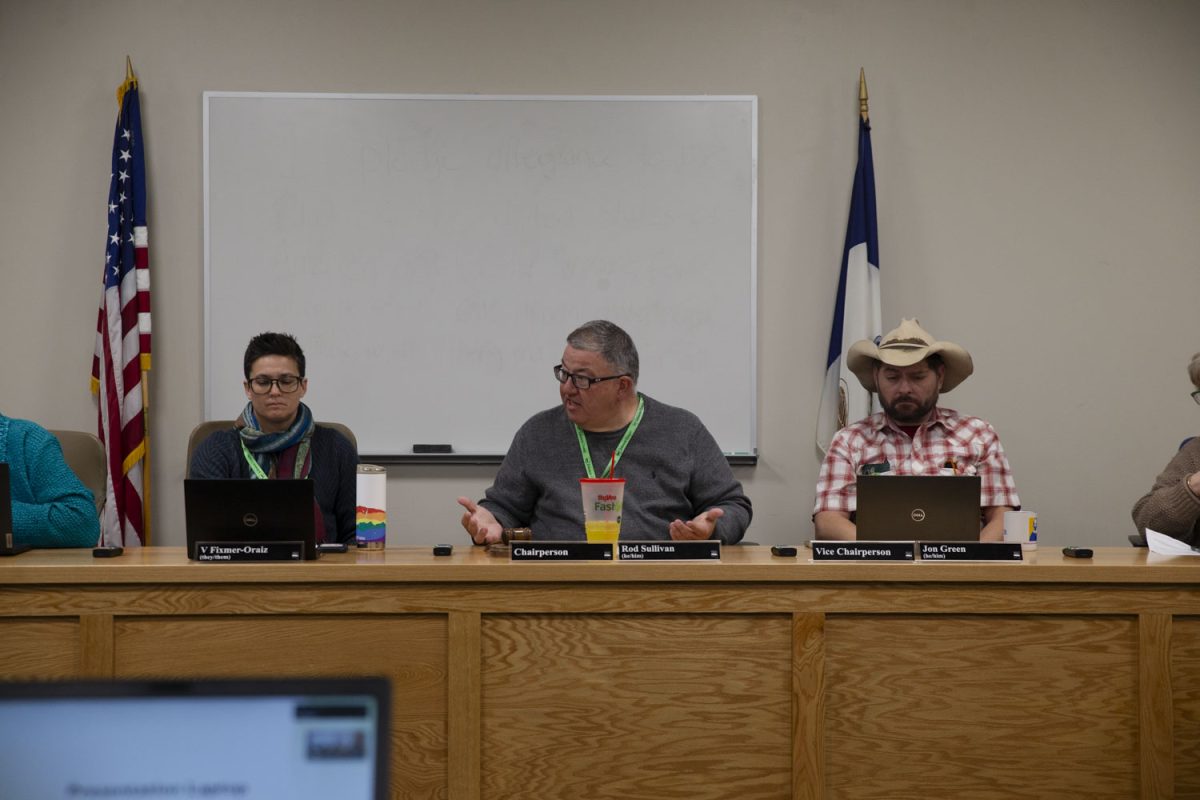Through innovation and creativity, one new University of Iowa program is hoping to influence decision-making in Iowa as well as the rest of the Midwest.
Humanities Without Walls is a large-scale project that 15 universities throughout the Midwest are taking on together in an effort to help university faculty members and graduate students find jobs and “regain the identity of the Midwest.”
The program will be run through the UI Obermann Center, which provides funding for humanities projects.
Obermann Center Director Teresa Mangum said Dianne Harris, the director of the Illinois Program for Research in the Humanities, started the consortium, which received $3 million from the Mellon Foundation.
“She pulled together people from major research universities, and they came up with an enormously inspiring idea,” she said. “This is the Global Midwest Project.”
The Global Midwest Project is one development stemming from Humanities Without Walls.
The project provides 30 small groups of faculty members and graduate students around $100,000 to help them pursue projects to conduct studies on how humanities can help the Midwest and, more generally, the world.
“In recent years, humanities has been challenged more and more with the economy being so tight,” she said. “I’m convinced that humanities is a critical part of undergraduate education, and we need to help the larger public to see how important it is.”
Mangum said two UI groups are using this project as an opportunity to regain history. One group will focus on small Iowa towns and the other will place an emphasis on local Native American tribes.
Stephen Pradarelli, the strategic communications cirector for the Office of the Vice President for Research and Economic Development, said the Obermann Center reports to, and receives support from, the reserach office.
“We support the Obermann’s involvement in the consortium and believe it presents a great opportunity for research and collaboration,” he said. “We’re looking forward to seeing the projects that emerge from this effort to look more deeply at the impact the Midwest has on the world.”
Jason Mierek, the office manager at University of Illinois-Urbana/Champaign, said the university, as a part of their work with Humanities Without Walls, is creating pre-doc workshops in Chicago allowing doctoral students to spend three weeks next summer attending workshops that provide insight to all of the jobs where their skills can be applied.
“It’s about time someone made an effort to help rediscover the role of the Midwest,” he said. “People think there’s not a lot here and that we’re not engaged globally, but that is not the case.”
Mierek said Humanities Without Walls helps budding professors rethink the Midwest and all of its historical and economical resources.
“Twentieth-century America is lacking roots,” he said. “In order to take care of a place, you must love that place. That is why this whole thing is so important.”
Mierek said graduate students are at a great disadvantage because they are so focused on the content they learn they forget the very skills they have acquired during their education.
“The world is made of millions of places,” he said. “Illinois, Iowa, Wisconsin, and all the other states in this region are a great part of where the action is and are very important on a global scale.”






